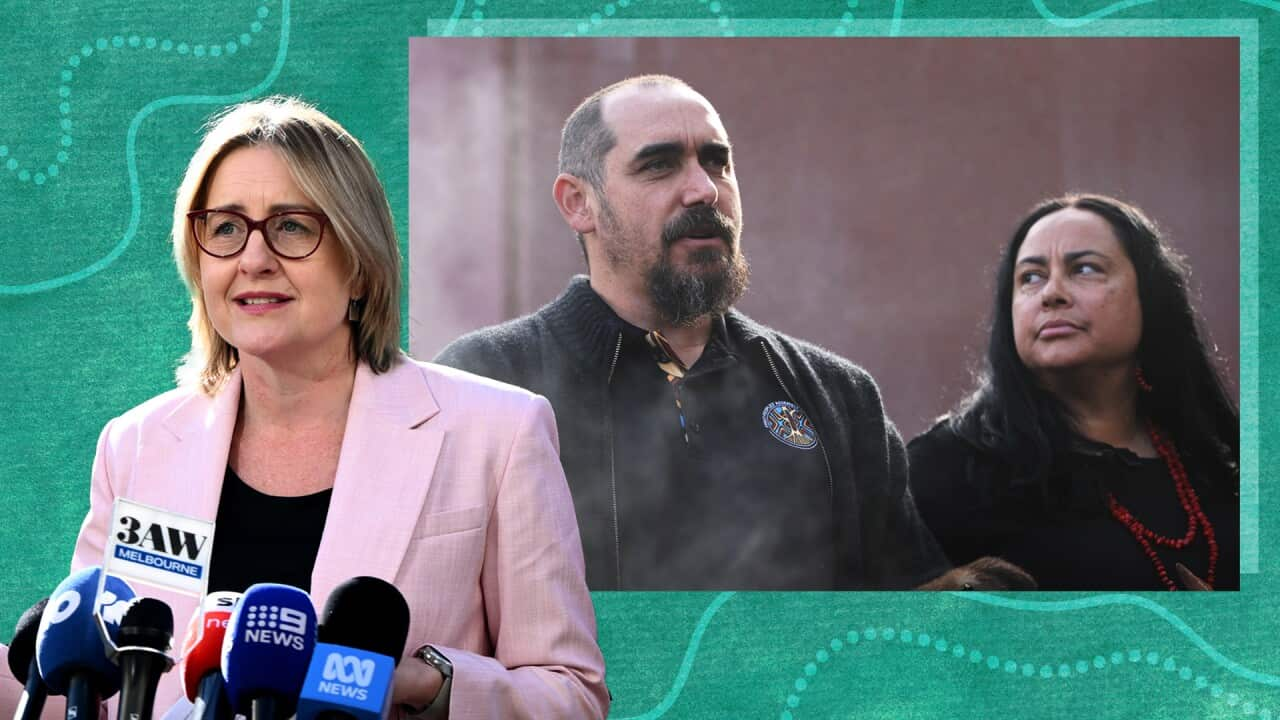Historic treaty negotiations in Victoria have come to an end, with the state government unveiling a new draft bill to implement a statewide treaty with First Nations peoples on Tuesday.
The First Peoples Assembly of Victoria, the state's democratically elected First Nations representative body, and the Victorian government have been negotiating the treaty for almost a year.
Once approved by parliament, it will be the first treaty between First Nations people and any government in Australia, and is the culmination of generations of work from Indigenous advocates in Victoria.
Co-chair of the First Peoples Assembly, Ngarra Murray, said the bill's introduction marked "the beginning of a new era, the treaty era".
"We are at a turning point in this nation’s history," she said.
"Treaty offers us the chance to reshape the story of this country. So today is a historic day."
Negotiations primarily focused on granting new powers to the Assembly, allowing it to become a permanent, decision-making body.
The final bill proposes that the Assembly be consulted by government departments on laws affecting the state's Indigenous population, and for it to make its own decisions and rules about specific matters affecting First Nations peoples.
"Government bureaucrats, no matter how well-intentioned, don’t know what works and doesn’t work for our communities – we do," First Peoples Assembly said in a statement.
"If we want to see improvements in health, education and housing for our people, the practical solutions need to come from us.
"Under Treaty, Government must speak with us when making laws, rules or policies about us."
The Assembly will also "form an independent accountability mechanism" relating to the National Closing the Gap initiative.
A new Outcomes and Justice Commission, Nginma Ngainga Wara ('you will do' in Wadi Wadi), will have the power to hold ministers accountable through public hearings.
Other provisions in the bill include a focus on further truth telling, continuing the work of the Yoorrook Justice Commission, restoring traditional place names to State and National Parks and some waterways, and management of the Victorian Aboriginal Honour Roll.
While the presumed passage of the bill will bring to a close the statewide treaty process, local treaties between Traditional Owner groups, covering their Countries and communities, still remain.

